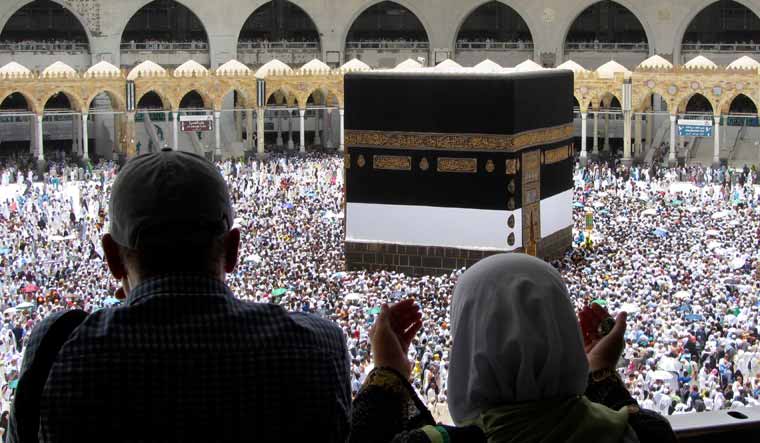Uncertainty persists on how Saudi Arabia intends to organise the hajj, the annual pilgrimage to Islam's holiest sites at Mecca and Medina. For all able-bodied Muslims, hajj is regarded as being mandatory at least once in life.
However, the continuing COVID-19 outbreak across the globe has cast a shadow over this year's hajj. This year, the week-long hajj is scheduled to begin on July 28.
Reuters has reported that Saudi Arabia could consider drastically cutting the number of pilgrims arriving for hajj. In normal circumstances, about 2.5 million Muslims performed the hajj every year.
In addition to its importance in Islam, the hajj is also a major source of foreign revenue for Riyadh. "Official data show hajj and the lesser, year-round umrah pilgrimage earn the kingdom about $12 billion a year," Reuters reported.
In March, as cases of COVID-19 started to increase, Saudi Arabia asked countries to put on hold their hajj plans and suspended the umrah pilgrimage.
Reuters noted that some Saudi officials are pushing to cancel this year's hajj. Reuters quoted two officials as saying Saudi Arabia could grant permission for only "symbolic numbers" of pilgrims this year for hajj, with restrictions such as a ban on the elderly and additional health checks.
Reuters reported, "With strict procedures, authorities think it may be possible to allow in up to 20 per cent of each country's regular quota of pilgrims."
Late last week, the Hajj Committee of India announced, "There is little chance of hajj 2020 taking place. Even those who do not apply for cancellation will get full refund." On average, around 2 lakh people from India travel on hajj to Saudi Arabia every year. An official of the committee said there has been "no communication from authorities in Saudi Arabia about the hajj".
The Malaysian government has announced that it will decide on Thursday whether citizens from the country would be sent for the hajj.
Last week, the government of Indonesia, the country with the world's largest Muslim population, cancelled participation of its citizens in the hajj, noting "the Saudi Arabian authorities failed to provide certainty". Approximately 2.2 lakh people from Indonesia used to participate in the hajj yearly.
Last month, Singapore also deferred participation in the hajj.
Saudi Arabia has seen a surge in COVID-19 cases, having recorded 105,283 infections till date. The kingdom has also seen 746 deaths from the coronavirus.
A decision to cancel or even scale down the hajj would be a blow to Saudi Arabia, given its plans to boost its capacity for religious tourism. "An economic reform plan of Crown Prince Mohammed bin Salman aims to increase umrah and hajj capacity to 30 million pilgrims annually and generate $13.32 billion of revenues by 2030," Reuters reported.
Interestingly, the indecision on the hajj follows criticism of activities of the Tablighi Jamaat group, which was blamed for a rise in COVID-19 cases in India, Pakistan and Malaysia.
The group had held meetings in these countries in March.



